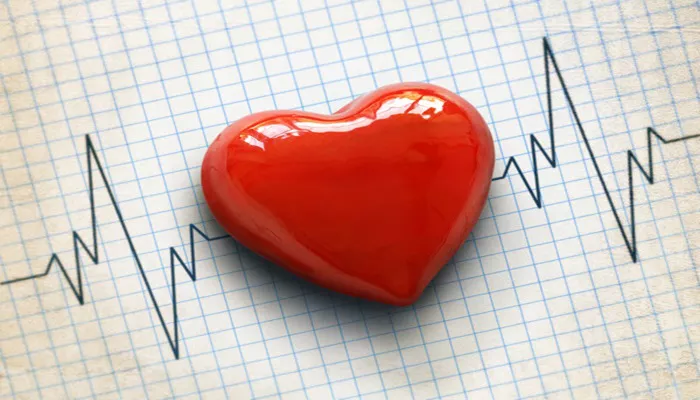Heart skipping, often referred to as heart palpitations, is a common phenomenon that many people experience at some point in their lives. This article aims to provide a comprehensive overview of the symptoms associated with heart skipping, as well as its potential causes and when to seek medical attention.
What Are Heart Palpitations?
Heart palpitations are sensations that make you feel like your heart is beating too fast, fluttering, or skipping beats. They can occur during physical activity or at rest and may be felt in the chest, throat, or neck. While they can be alarming, most instances of heart palpitations are harmless and often resolve on their own.
Common Sensations Associated with Heart Skipping
When experiencing heart palpitations, individuals may describe their feelings in various ways:
Racing: A rapid heartbeat that feels unusually fast.
Thumping or Pounding: A strong heartbeat that feels forceful.
Fluttering: A sensation of the heart “flipping” or “fluttering.”
Skipping Beats: The feeling that the heart has missed a beat.
These sensations can vary in duration and intensity, sometimes lasting only a few seconds or continuing for longer periods.
Symptoms of Heart Skipping
Heart palpitations can be accompanied by other symptoms that may indicate a more serious underlying condition. Here are some common symptoms associated with heart skipping:
Shortness of Breath: Difficulty breathing or a feeling of breathlessness.
Chest Pain or Discomfort: A tightness or pain in the chest area.
Dizziness or Light-headedness: Feeling faint or unsteady.
Fainting or Near-Fainting Episodes: Loss of consciousness or feeling faint.
It is crucial to note that while many people experience palpitations without any serious implications, certain symptoms warrant immediate medical attention.
SEE ALSO: How Long Does Afib Ablation Last?
When to Seek Medical Attention
You should consult a healthcare professional if you experience any of the following:
Palpitations that last more than a few minutes.
Frequent episodes of palpitations.
A family history of heart rhythm problems.
Accompanying symptoms such as chest pain, shortness of breath, dizziness, or fainting.
In such cases, it is essential to seek urgent medical care to rule out any serious conditions.
Common Causes of Heart Skipping
Heart palpitations can arise from various factors. Understanding these causes can help individuals identify potential triggers and manage their symptoms effectively.
1. Emotional Triggers
Anxiety and Stress: Emotional states such as anxiety, stress, and panic attacks can significantly impact heart rhythm. When under stress, the body releases adrenaline, which can lead to an increased heart rate and sensations of fluttering or skipping beats.
2. Stimulants
Caffeine and Nicotine: Consumption of stimulants like caffeine (found in coffee, tea, and energy drinks) and nicotine (from smoking) can trigger palpitations. These substances stimulate the nervous system and may lead to irregular heart rhythms.
3. Hormonal Changes
Menstrual Cycle and Pregnancy: Hormonal fluctuations during menstruation, pregnancy, or menopause can also contribute to heart palpitations. Women may notice an increase in palpitations during these times due to changes in hormone levels.
4. Medical Conditions
Several medical conditions can lead to heart skipping:
Atrial Fibrillation (A-Fib): A common arrhythmia where the heart beats irregularly and often rapidly. This condition requires medical evaluation as it increases the risk of stroke.
Hyperthyroidism: An overactive thyroid gland can elevate metabolism and lead to increased heart rates.
Heart Disease: Structural issues with the heart’s valves or muscles can also cause palpitations. Conditions like mitral valve prolapse are known to be associated with skipped beats.
5. Medications
Certain medications may cause palpitations as a side effect. This includes:
Over-the-counter medications for colds that contain stimulants.
Some asthma medications.
Diet pills that stimulate metabolism.
Lifestyle Factors Influencing Heart Skipping
In addition to medical conditions and emotional triggers, lifestyle factors play a significant role in heart health:
Dietary Habits: High-sugar diets or excessive alcohol consumption can contribute to irregular heart rhythms.
Physical Activity: Both intense exercise and inactivity can lead to palpitations. It’s essential to find a balance that suits individual health needs.
Managing Heart Palpitations
While many cases of heart skipping do not require treatment, there are several strategies individuals can adopt to manage their symptoms:
1. Stress Management Techniques
Practicing relaxation techniques such as deep breathing exercises, yoga, meditation, or tai chi can help reduce anxiety levels and subsequently decrease palpitations.
2. Lifestyle Modifications
Making changes in daily habits can significantly impact heart health:
- Limit caffeine and alcohol intake.
- Avoid smoking.
- Maintain a balanced diet rich in fruits, vegetables, whole grains, and lean proteins.
3. Regular Exercise
Engaging in regular physical activity helps improve overall cardiovascular health but should be approached cautiously if experiencing frequent palpitations.
Conclusion
Heart skipping is a common experience for many individuals and often does not signify a serious health issue.
Understanding the symptoms associated with heart palpitations and recognizing when to seek medical attention is crucial for maintaining cardiovascular health. By adopting healthy lifestyle choices and managing stress effectively, individuals can reduce the frequency and severity of palpitations.
Related topics:
- How Could A Fetal Arrhythmia Affect Fetal Oxygenation?
- Why Do I Get Arrhythmia After Eating?
- What Is The Clinical Significance of an Arrhythmia?

